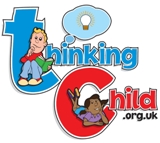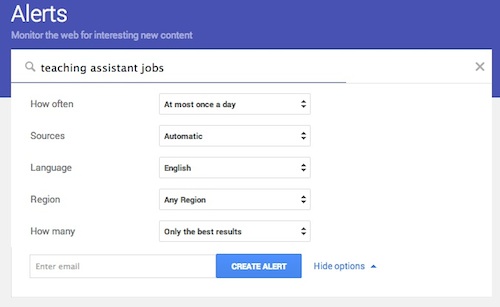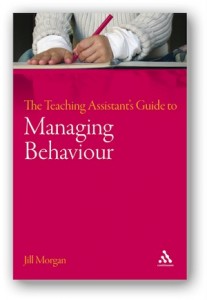 Thinking Child aims to produce creative resources and training opportunities for colleagues, children and parents. They have generously provided TA Focus with helpful guides for Teaching Assistants. Please read, share and give us any feedback on further topics you would like to know more about.
Thinking Child aims to produce creative resources and training opportunities for colleagues, children and parents. They have generously provided TA Focus with helpful guides for Teaching Assistants. Please read, share and give us any feedback on further topics you would like to know more about.
Practical Tips for Promoting Better Listening Skills by Sue Dixon, founder of Thinking Child
Do you ever feel like a broken record? (or should that be MP3 player these days?)
How many of these have come out of your mouth this week?
- “Can you just listen children?”
- “You need to listen carefully if you are to know what to do”
- “Are you listening carefully Charlotte (insert name of your choice)?”
- “Did you listen to a word I just said?”
- “You don’t know what to do because you…. Didn’t listen, that’s right.”
Children need to really understand what ‘good listening’ is and although it takes a bit of time to ‘train’ children to be better listeners, I believe it is time well spent and will pay off in the end. The impact on behaviour is really noticeable.
Here are a few suggestions for activities to use with children to get them to think, discuss and understand what listening is.
- What’s the difference between hearing, noticing, and listening? Are there any other words that we sometimes use for listening – eavesdropping, snooping, being nosy, detecting.Write the words ‘LISTENING, NOTICING, HEARING’ on some cards. Ask children to say which is the odd one out and why. Ask children to come up with their own definition of what Listening is.
- Put children into pairs and ask them to talk to each other for 30 seconds. One partner starts off and tells the other their favourite food, their middle name and something they are scared of. They then swap over. They then ‘introduce’ their partner to someone else in the group, remembering all the things they listened to and remembered. How intently did they have to listen to do that? Did they really have to ‘engage their brain’ to listen carefully?
- If you have a confident child in the group ask them to talk to you about themselves – family, pets, things they like doing etc. As they start talking look away, fiddle with something on the table, maybe whisper to someone next to you – i.e. do things that show what being an inconsiderate/rude person does when they aren’t listening to someone who is talking. Then ask the child who was talking to you to explain how it made them feel. It is a good way to demonstrate how hurtful it feels when someone is actively NOT listening.
- Play a ‘back to back’ drawing game. Two children sit back to back and one explains how to draw a simple pattern to the other without saying what the object / thing is.
- Write the word ‘LISTENING’ in the middle of a large piece of paper. Ask children to surround it with post it notes – what words do you associate with the word ‘Listening’? Use their ideas to unpick the more subtle aspects of what listening involves.
- Chinese Symbol for “Listen” The Chinese have a symbol for Listening which is worth sharing. It is a visual reminder that we need more than our ears to listen. Our eyes are important, but also our undivided attention and our heart.
 Chinese Symbol for “Listen”
Chinese Symbol for “Listen”
- the left section denotes the ‘ear’There are 4 sections on the right:
- the top one says ‘you’
- next is ‘eyes’
- then ‘undivided attention’
- the last is the ‘heart’
Why do you think these are needed to “listen”?
- During a group session ask one of your more ‘vocal’ children to be the ‘Listening Observer’ and look out for signs of good listening in other children. They could have a clip board and every time they see a child being a ‘good listener’ they have to make a note of it. They then report back to the group at the end. Keeping them busy in this way usually makes them quieter themselves!
- Do some simple checks – is the seating arrangement you’ve got one where children can all see each other? A simple thing but necessary to encourage a positive group ‘vibe’
- Make some group ‘rules for listening’ (and some for talking too) – keep it to fewer than 5 so they are more easily remembered: e.g. ‘Look at the person who is talking’ ‘Wait for them to finish what they are saying before talking yourself.’
- At the start of each new session spend a minute refreshing the rules with everyone. Ask children to predict how good a listener they think they are going to be in this session:
“ On a scale of 1 – 10 (1 being the very best listener in the world!) – how good a listener are you going to be today?”
Then at the end of the session ask them to score themselves against their prediction. Children are usually very honest so you can have a conversation about how we might improve next time. “What types of behaviour do we need to work on? Not shouting out? Perhaps sitting on our hands when we feel the urge to shout out might help?”
You will still be a bit of a broken record – but hopefully not forever. Keep things positive and go for small steps of achievement.
Good Luck
 If this question was asked 10 years ago, the answer would be pretty easy. Find an open Teaching Assistant position in your local school and give them a call. Chances are you’ll walk into a job without any experience. Today, this couldn’t be further from the truth. The Teaching Assistant role has changed dramatically in recent years and these key members of classroom support staff have increased responsibility (but not pay, I should add). If there is one fact a TA-to-be should know is the role is hugely competitive now. With tight budgets and highly qualified candidates to choose from, many TAs are finding it hard to secure employment.
If this question was asked 10 years ago, the answer would be pretty easy. Find an open Teaching Assistant position in your local school and give them a call. Chances are you’ll walk into a job without any experience. Today, this couldn’t be further from the truth. The Teaching Assistant role has changed dramatically in recent years and these key members of classroom support staff have increased responsibility (but not pay, I should add). If there is one fact a TA-to-be should know is the role is hugely competitive now. With tight budgets and highly qualified candidates to choose from, many TAs are finding it hard to secure employment.


